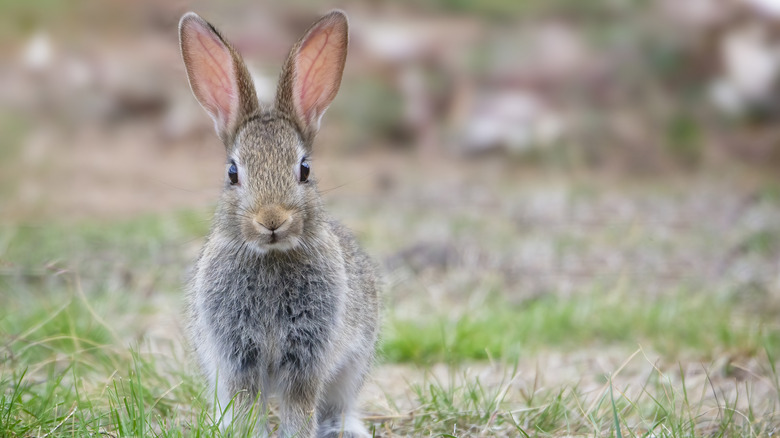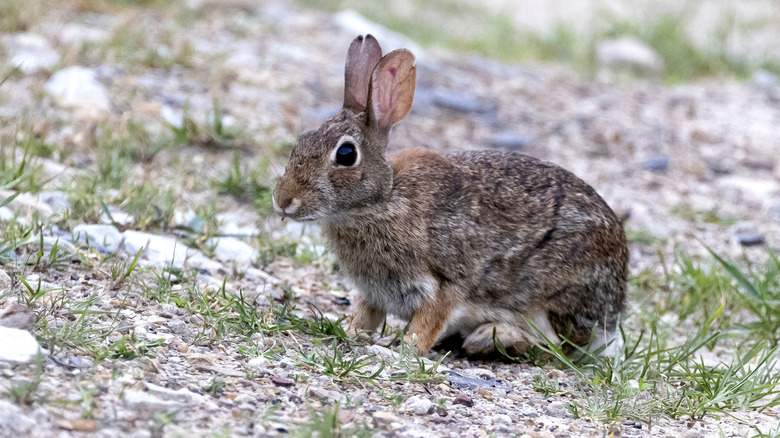Rabbits Are Growing Tentacles On Their Heads In Colorado - Here's Why
Fort Collins, Colorado has reported sightings of cottontail rabbits with tentacle-like, horned growths on their heads appearing in recent weeks, sparking concerns from citizens of the city about the health risks that these "Frankenstein" rabbits might pose both to other rabbits and humans.
While experts from Colorado Parks and Wildlife told the Coloradoan that the "rabbit papillomas" don't usually pose any significant danger to wild rabbits, at times it can affect their eyes or mouths and interfere with their ability to see, eat, and drink. Colorado Parks and Wildlife notes that most rabbits are able to survive the infection, but when it impacts their ability to eat and drink, euthanizing is often the most humane solution.
Considering we've seen some pretty terrifying infections spread in the animal kingdom — like zombie fungus that can take over an insect's brain and eat away at them — it's not surprising that people have been freaked out by the appearance of horn-like growths on wild rabbits. Thankfully, the reason behind the strange appearance of these papillomas is bit more mundane, and it can't be transferred to humans in any way.
The science behind why rabbits grow horns
While it might look like something out of a science fiction novel, the growth, it turns out, is caused by the papillomavirus, which typically only infects rabbits in the warmer months of the year after it is transmitted to them by infected fleas, ticks, and other insects. The virus then clears out of their systems in the cooler months, and the rabbits tend to be just fine, the spokesperson told the Coloradoan. The virus doesn't transfer across different animal species or from rabbits to humans. And, in most cases it isn't deadly to the rabbits — unlike the reports we saw a few years ago of a deadly virus spreading through rabbits in the U.S.
The important thing to note here, though, is that while the virus doesn't typically put the lives of wild rabbits at risk, it can be more severe for domestic rabbits that come in contact with it, and since it can be transmitted through direct contact or by being bitten by insects. As such, any outdoor rabbits should be watched for signs of the virus, which could appear as horn-like growths on the head, or black nodules on the skin in other places on the rabbit's body.
If any domestic rabbits get the virus, Colorado Parks and Wildlife recommends taking the animal to a vet as soon as possible to avoid any potential complications from the virus.

